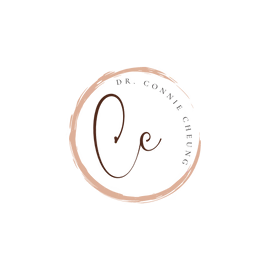Dr. Connie shares her vast experiences that led her to create Functional Yoga Medicine. That fragmented approach does not work, and dependence on medications is a recipe for health crisis.
There is a great need for a growing number of individuals for a different approach to health, wellness, and longevity. No matter what health struggles you may be going through, there’s a better way.
Dr. Connie explains why Functional Yoga Medicine aims to challenge the status quo and empower as many people as possible to integrate a holistic lifestyle that provides the solution daily to overcome the health challenges.
My Journey: Why I Created Functional Yoga Medicine
Recently, I met new students and colleagues who asked me how I came up with Functional Yoga Medicine, which integrates all aspects of health. This led me to think about my professional journey.
My work has revolved around health and wellness for as long as I can remember. I’ve worn many hats: physical therapist, registered dietitian, functional medicine practitioner, yoga and Pilates practitioner. Each role brought insights and challenges, contributing to a holistic understanding of the human body.
Yet, despite this extensive background, I always felt something was missing. This sense of incompleteness became particularly poignant as I navigated my journey with lupus. This autoimmune condition constantly reminded me of the human body’s complexities and the inadequacies of a fragmented healthcare system.
Living with Lupus: A Personal Struggle
Living with lupus has been a constant reminder of the need for a more integrated approach to health. From the outset, I was up against all odds. Doctors told me about my limitations and ordered me to take medications for the rest of my life.
This prescription of a lifetime dependency on medication wasn’t good enough for me. I refused to accept that this was my only option. Determined to beat the odds, I embarked on a journey to understand how to create the life and health I wanted on my terms. This drive led me to obsess over finding solutions. I immersed myself in learning, continually seeking ways to integrate the knowledge from my diverse fields of expertise. I questioned the conventional approaches and explored alternative methods, all while living with an autoimmune condition that tested my resolve daily.
Despite the boundaries set by the healthcare system, I pushed relentlessly to find better ways to treat my patients and myself. I combined physical therapy techniques with nutritional guidance, integrated functional medicine insights with yoga and Pilates practices, and continually sought to bridge the gaps between these disciplines.
My fierce goal was to improve my health and empower my patients to achieve better health outcomes.
Through this journey, I realized that true healing and wellness come from understanding and addressing the interconnectedness of our body’s systems. I saw firsthand how an integrative approach could lead to more comprehensive and effective care, and this realization became the foundation for Functional Yoga Medicine.
A Multidisciplinary Background
In my career, I have dedicated myself to understanding the intricacies of physical therapy, the nuances of nutrition, the integrative approaches of functional medicine, and the mindfulness of yoga and Pilates.
Each field offered invaluable knowledge and tools, yet they often existed in silos. In the traditional healthcare system, I was forced to separate these disciplines, treating patients from a single perspective at a time. This compartmentalized approach seemed insufficient, especially when considering the interconnectedness of our bodies and minds.
The Limitations of a Fragmented System
The more I worked within these constraints, the more I realized that my patients needed to benefit from my diverse expertise. A patient might come to me for physical therapy, but their issues were not solely physical. Nutritional imbalances, stress, and emotional health often played significant roles in their conditions. However, the healthcare system required me to address only the physical symptoms, leaving other crucial aspects of their health unaddressed.
Living with Lupus: A Personal Struggle
Living with lupus has been a constant reminder of the need for a more integrated approach to health. The chronic nature of this autoimmune condition means that I must be vigilant about all aspects of my well-being—physical, nutritional, emotional, and mental. My personal struggles underscored the limitations of conventional healthcare, which often addresses symptoms in isolation rather than viewing the person as a whole.
The Birth of Functional Yoga Medicine
Driven by these experiences, I was inspired to create Functional Yoga Medicine. This approach is designed to break down the barriers between different health disciplines and offer a truly integrative solution. Functional Yoga Medicine combines the strengths of physical therapy, nutrition, functional medicine, and mind-body practices like yoga and Pilates. It goes beyond traditional treatment methods, including essential life skills that help individuals regulate their enteric, autonomic, and somatic systems and minds.
True Integration for Holistic Health
Functional Yoga Medicine is about more than just treating symptoms; it’s about empowering individuals to take control of their health. By integrating various disciplines, we can provide comprehensive care that addresses the root causes of health issues. This holistic approach not only enhances the effectiveness of treatments but also equips patients with the knowledge and tools they need to maintain their health and well-being in the long term.
Creating Functional Yoga Medicine has been a deeply personal and professional journey. It is the culmination of years of learning, practicing, and overcoming challenges—both my own and those of my patients. I aim to offer a path to proper integration, where knowledge meets application, and patients receive the full spectrum of care they deserve. Through this approach, I hope to impact the lives of those I serve, providing them with the essential life skills to navigate their health journeys with confidence and resilience.



